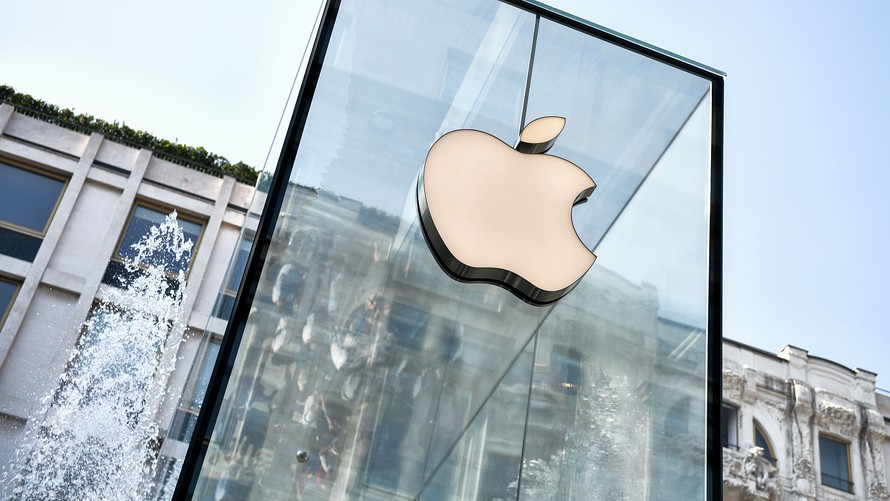
U.S. stocks closed mostly lower Wednesday after the Federal Reserve left interest rates unchanged but signaled another imminent rate increase. Fresh worries over U.S.-China trade friction dampened sentiment although positive results from Apple buoyed the tech sector and helped the Nasdaq buck the weak trend.
What did benchmarks do?
The Dow Jones Industrial Average DJIA, -0.32% slid 81.37 points, or 0.3%, to 25,333.82. The S&P 500 SPX, -0.10% shed 2.93 points, or 0.1%, to 2,813.36.
The Nasdaq Composite Index COMP, +0.46% gained 35.50 points, or 0.5%, to 7,707.29 which some analysts attribute to relief among investors that earnings growth among big tech firms have a not hit a wall despite weakness from a handful of companies.
The S&P 500’s tech stocks rose 1%, the best performer out of the 11 sectors.
What drove markets?
The Fed kept its main interest rate unchanged at 1.75% to 2%, as widely expected, and indicated that it is likely to raise rates next month as the economy remains strong.
Markets have penciled in two further rate increases for this year, in September and December.
Healthy earnings and a strong economic backdrop have buttressed the overall market even as a series of jitters have knocked stocks around. According to data from S&P Dow Jones Indices, 80% of the S&P 500 stocks that have reported second-quarter earnings so far have topped profit expectations, well above the historical average of 67%.
Robust iPhone sales helped Apple Inc. AAPL, +5.89% report its highest-ever revenue for the three months ending in June — typically a seasonally weak quarter for the tech giant. The results beat Wall Street expectations and Chief Executive Tim Cook provided an upbeat outlook for the coming quarter.
Shares rallied 5.9%, with the stock climbing to a record. It has risen 19% thus far this year.
However, sentiment was dampened by the ongoing trade spat between the U.S. and some of its largest trading partners. After the closing bell, the White House announced a proposal to raise tariffs on $200 billion worth of Chinese products to 25% from the previously announced 10%.
Economic data in focus
The latest data on private-sector employment showed 219,000 jobs added in July, well above the 178,000 that had been expected.
Separately, the Markit manufacturing purchasing managers index came in at 55.3 in July. The Institute for Supply Management’s July manufacturing index was 58.1%, below expectations for a reading of 59.5%.
What are market analysts saying?
“Today’s decision was already priced in so it’ll have minimal impact as the market is more focused on global trade tensions,” said Kevin Nicholson, chief market strategist at RiverFront Investment Group. “When you look at the S&P 500, it’ll continue to be rangebound as there’s a lot of overhead resistance around 2,850. In order to move any higher we have to see trade tensions resolve.”
“The stock market has already taken 3% interest rates in its stride. As it becomes more evident that the Fed is adjusting policy to a stronger economy, stocks should be able to move higher,” said Sandip Bhagat, chief investment officer at Whittier Trust.
“It’s hard to separate trade negotiations from escalations in tensions. Both sides have taken shots and made threats, and we have to see how the dust settles. But clearly the risk hasn’t been taken off the table, and the potential for a real escalation with China is much larger than it is with other trading partners,” said Bruce McCain, chief investment strategist at Key Private Bank.
“In my view the market is also struggling because of potentially higher interest rates. The ADP Private Sector Employment survey indicated strength, not weakness, hence the greater probability of two interest rate hikes. The 10-year Treasury is broaching the psychologically important level of 3%, the level which is [and] was associated with increased equity volatility,” said Kent Engelke, chief economic strategist at Capitol Securities Management Inc.
Which stocks were in focus ?
Humana Inc. HUM, +1.26% reported adjusted second-quarter earnings that beat expectations. It also raised its outlook. Shares rose 1.3%.
Restaurant Brands International Inc. QSR, +1.24% edged up 1.2% after it reported adjusted second-quarter earnings that beat expectations.
Molson Coors Brewing Co. TAP, +3.48% reported adjusted second-quarter earnings that topped consensus analyst forecasts. The stock rallied 3.5%.
Pandora Media Inc. P, +14.69% spiked 15% a day after it reported second-quarter earnings and revenue that beat expectations.
Ford Motor Co. F, -1.39% fell 1.4% after it reported a drop in its July sales.
The Wall Street Journal reported that activist investor Third Point LLC has built a stake of more than $300 million in Campbell Soup Co. CPB, +1.30% citing a person familiar with the matter. The stock rose 1.3%.
What were other markets doing?
European stocks SXXP, -0.45% ended lower across the region, while Asian markets were mixed with China weaker but Korea and Japan higher.
The benchmark 10-year Treasury yield TMUBMUSD10Y, -0.22% traded at 3% for the first time since June.
U.S. oil futures CLU8, +0.37% were down more than 1% and gold futures GCQ8, -0.17% settled lower while the ICE U.S. Dollar Index DXY, -0.01% edged up 0.2%.

